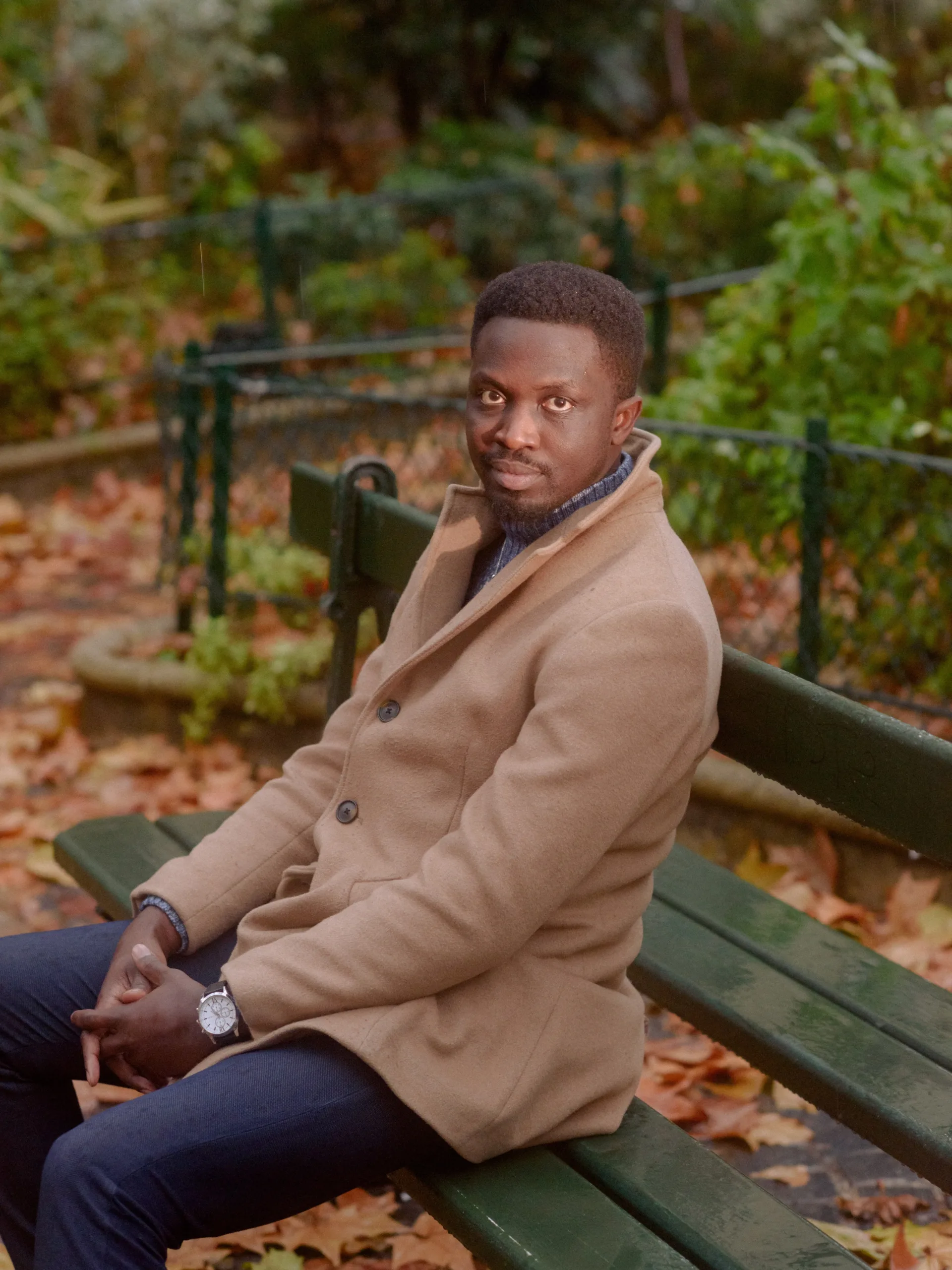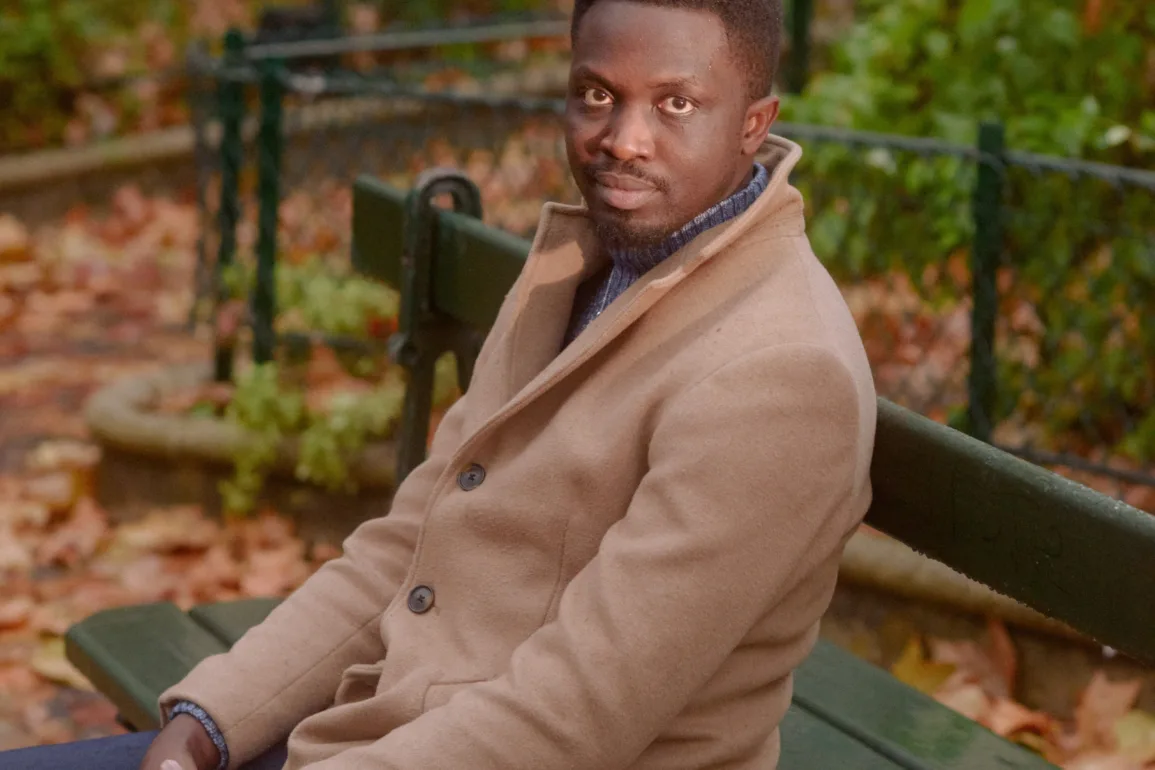How a Literary Scandal Inspired a Mischievous New African Novel

In 1968, the Malian novelist Yambo Ouologuem won France’s prestigious Prix Renaudot for a bloody satire about a fictional African country called “Bound to Violence.” Opening in mock epic style with the brutality of a medieval empire, and ending amid baroque assassinations in the mid-twentieth century, it vents its spleen in every direction: at slave traffickers, native and foreign; corrupt clerics and mercenary anthropologists; and, especially, oppressive rulers who used idyllic visions of the African past to hoodwink their countrymen. (Among its targets seems to have been Senegal’s poet-President, Léopold Sédar Senghor, a leader of the Négritude movement and a future “immortal” of the Académie Française.) The book’s biggest dupe is an African student in Paris, cultivated as the “black pearl of French culture” and then installed as the puppet leader of his nation.
Ouologuem’s novel was a triumph and a scandal. Western critics hailed the arrival of a Black intellectual unafraid to tell the truth about his continent, whose “startling energy of language,” John Updike wrote in this magazine, bespoke “modes of human existence prior to civilization.” Many African writers accused him of cynicism or even self-hatred, though later generations would praise him for asserting literature’s independence from nativism. In the midst of these debates, it emerged that “Bound to Violence” included unattributed passages from Graham Greene and André Schwarz-Bart, among others. Ouologuem blamed his publisher for deleting quotation marks, a claim that the publisher found absurd. He left France, disavowed his books, and became a marabout in his native Mali, where he died in 2017.
It was, in one scholar’s words, “an incalculable loss to world literature.” Yet an author’s abdication can exert a powerful fascination. “Silence is the artist’s ultimate other-worldly gesture,” Susan Sontag once argued, reflecting on writers whose renunciation of their work had burnished it with an aura of “unchallengeable seriousness.” Ouologuem’s enigmatic withdrawal has proved similarly magnetic. Was he a great iconoclast and pasticheur? Or a cautionary tale, a mimic man whom Western letters seduced, then rejected and disgraced? Did he give up writing in defeat or in defiance, or simply because he found answers somewhere else?
Read our reviews of notable new fiction and nonfiction, updated every Wednesday.
In 2021, a young Senegalese author named Mohamed Mbougar Sarr won the Prix Goncourt—France’s most prestigious book prize—for “The Most Secret Memory of Men,” a rollicking literary mystery dedicated to Ouologuem and loosely inspired by his disappearance. It revolves around the search for a Senegalese author of the nineteen-thirties, T. C. Elimane, whose long-forgotten novel—every copy was said to have been destroyed—resurfaces in contemporary Paris. Elimane’s work becomes an obsession for a contemporary cohort of African writers, giving them “the chance to tear each other limb from limb in pious and bloody literary jousts.” The narrator speaks of it like scripture: “His book was both cathedral and arena; we entered it as if entering a god’s tomb and ended up kneeling in our own blood, offered as libation to the masterpiece.”
“The Most Secret Memory of Men” is an aerobatic feat of narrative invention, whirling between noir, fairy tale, satire, and archival fiction in its self-reflexive meditation on the nature of literary legend. Its Goncourt was seen as a coup in the world of French letters, which had never before conferred its highest recognition on a writer from sub-Saharan Africa. (Sarr’s characters poke delicious fun at such dubious ethnogeographical distinctions.) This month, it’s finally becoming available to Anglophone readers in Lara Vergnaud’s propulsive translation for Other Press, which also plans to rerelease “Bound to Violence.”
There’s an element of poetic justice in an homage to Ouologuem winning such approbation from the very establishment that discarded him. Sarr witheringly scrutinizes the cultural Françafrique—a word for France’s geopolitical influence over its former colonies—that relegates African fiction to the status of veiled memoir, ethnographic study, or folkloric entertainment. Defying these categories, he delivers a demiurgic story of literary self-creation, transforming the sad fate of an author who stopped writing into a galvanizing tale about all that remains to be written.
Sarr’s narrator, Diégane Latyr Faye, is a young Senegalese writer in Paris. He’s charmingly neurotic, passionately literary, and, having strayed from the “noble path of academia” to become a novelist, completely adrift. His girlfriend has left him for a career in foreign reporting and his parents in Dakar wonder why he never calls. He has published one novel, pretentiously titled “Anatomy of the Void,” but it sold only a few dozen copies, and he’s already squandered a month on the first sentence of his next. Seemingly all that tethers him to earth are his friends in the Paris literary scene’s “African Ghetto,” who share little more than a continent of origin and a great deal of frustration.
A deft caricaturist, Sarr sketches this clique with the mischievous affection of a recent alum. There’s a Franco-Guinean influencer whose buzzy début, “Love Is a Cocoa Bean,” is the toast of Instagram, and a Congolese poet whose reviews are as ruthless as his hexameters are recondite. They gather to kvetch about their literary elders (many of them mired in the “slave hold” of self-exoticism), African readers (“avid to be represented when they are in fact unrepresentable”), white ones (who envision them “weaving tales in the moonlight”), and, above all, the French literary establishment, object of their public derision and private dreams.
The anxiety of influence is crushing for Diégane, who grew up in a country “still haunted by Senghor’s cumbrous ghost.” In one of the novel’s funniest chapters, he almost participates in a threesome with other members of the group, but overthinks the situation’s literary resonances. “First we surrendered to the galvanic tremors of the barely nubile night, green as a young mango,” he recounts, parodying the sensual imagery of Négritude. Their hostess proposes moving to the bedroom, but Diégane, too timid, ends up stewing on the couch under a giant crucifix, trying to ignore the cacophony of lovemaking as he hallucinates a conversation with Jesus. Vergnaud’s fine ear gives vivid life to the Englished Diégane, whose extravagant sentences belie his literary-libidinal stagefright.
What initiates the central narrative is another failed tryst, this time with an older woman: Marème Siga D., doyenne of Senegal’s expatriate writers, whose scandalous frankness has given her the reputation of an “evil Pythia.” As their foreplay fizzles, Siga D. chides Diégane for confusing life and literature—and sends him home with a copy of T. C. Elimane’s “The Labyrinth of Inhumanity.” He spends the next two months on its author’s trail, searching for answers to his own quandaries in Elimane’s. “People think, as if it’s a foregone conclusion, that it’s the past that returns to inhabit and haunt the present,” he reflects. “But it could be that the reverse is just as true if not more so, and that it’s us relentlessly haunting those who came before. We are the true ghosts of our history, our ghosts’ ghosts.”
Sarr lends his narrator many aspects of his own biography. Born in 1990, the eldest of a doctor’s seven sons, he began writing poetry at military school in Saint-Louis, once the capital of French West Africa, and graduated with so many honors that he was declared Senegal’s top student. He later enrolled at Paris’s École des Hautes Études en Sciences Sociales, where he began a dissertation on three West African writers and their work in the late sixties: Ahmadou Kourouma, Malick Fall, and Yambo Ouologuem. Ouologuem’s swift rise and subsequent ostracism particularly fascinated him. “I always ask myself whether he would have had the same fate if he hadn’t been Malian,” Sarr said recently, arguing that what really bothered Western readers about Ouologuem was that he “not only copied but, more explosively, parodied texts from the colonial tradition.”
Eventually, Sarr decided to stop studying fiction and start publishing it, releasing his début novel with the storied house Présence Africaine. “Brotherhood” (2015) takes place in a fictional African city seized by an Islamist militia, whose residents establish an underground journal to chronicle the occupation. The book’s theme was topical—Mali, at the time, had become embroiled in an insurgency—but its execution recalled the social novels of the nineteenth century, bringing comedy, melodrama, psychological acuity, and encyclopedic ambition to its portrayal of the corrupt jihadists and their skeptical subjects. The pattern continued with “Silence du Chœur” (2017), a raucously polyphonic novel about a group of African migrants and their confrontation with European nativists in a small Sicilian town.
The two books won a number of prizes, and early success seemingly emboldened Sarr to take a major risk. His third book, “De Purs Hommes” (2018), is a riveting psychodrama that dissects Senegal’s taboo against homosexuality. The narrator, a professor in Dakar, finds his life upended after a woman he’s seeing shows him a viral video of a mob disinterring and desecrating a suspected homosexual’s corpse. Feigning indifference, he gradually becomes obsessed with the plight of the góor-jigéen (a Wolof slur that means “man-woman”), struck by the irony that homosexuality, though decried as Western decadence, is latent in some traditional practices. Once the narrator’s students stage a boycott in response to his lecture on Verlaine, the stigma also begins to envelop him.
At first, the novel was mostly ignored in Senegal. But controversy erupted after Sarr was “goncourisé.” Local writers and religious leaders accused him of selling out his culture. The more conspiracy-minded speculated that he had received the Goncourt as a reward for his pro-L.G.B.T.Q. stance, or was even himself a disguised homosexual. The fracas didn’t stop Senegal’s President from awarding the young author the National Order of the Lion. But it did shed light on why Sarr might have found such a model in Ouologuem’s courageous effrontery.
Fictionalizing literary history can allow writers to exorcise its overbearing presence, to escape its clichés and culs-de-sac. Jorge Luis Borges reviewed imaginary books to overcome the enormous weight of the forebears who obsessed him. Ishmael Reed, in his novel “Mumbo Jumbo,” tried to free African American writers from their pigeonholes by parodying the archetypal figures of the Harlem Renaissance. Similarly, Sarr borrows from Ouologuem’s life to fashion a new origin myth for his tradition.
The fact that Elimane is Senegalese, not Malian, and publishes in the nineteen-thirties, not the sixties, situates him near the very beginning of African literature in French. We aren’t privy to more than a few sentences of his “Labyrinth of Inhumanity,” but it certainly isn’t Négritude. The story begins with a tyrant who massacres his kingdom’s elders, suggesting bold iconoclasm rather than stylized nostalgia. Press clippings describe a “Negro Rimbaud” who inspires polemics by bigoted imperialists, patronizing socialists, and a host of others, all seemingly less interested in the book itself than in whether or not it is “African down to its marrow.”
His biography is related through an engrossing sequence of nested narratives. When Diégane visits Siga D. in Amsterdam, she regales him with tales of the great author’s private life, introducing a tertiary cast of narrators that includes journalists, one of his former lovers, and her own family back in Senegal—which, in a twist, is also Elimane’s. We learn that he was involved in a ménage à trois with his publishers, a Jewish couple; fought with the French Resistance; and possibly spent years travelling Europe in search of his father, a soldier with a colonial education who disappeared on the battlefield after volunteering to fight for France in the First World War. Except, it emerges, Elimane might actually be the son of the soldier’s twin and romantic rival, a blind fisherman who practices sorcery. The paternity question allegorizes a crisis of literary origins: Is Elimane heir to the brother who left or the brother who stayed, European brainwashing or Senegalese tradition?
The plot’s endless recursions are a reductio ad absurdum of the quest for authorial authenticity, particularly acute in the context of African literature. One reason that plagiarism allegations sank Ouologuem’s career so quickly is that readers expected him to embody the essence of a race, a culture, and a continent. To borrow an image from “Bound to Violence,” he’d sold the ethnologists of the literary world a fake mask. Yet artifice and absence are basic to the modern myth of the writer, which Sarr both mocks and defiantly claims. “Of a writer and their work, we can at least know this,” Diégane proclaims in the novel’s opening sentence. “Together, they make their way through the most perfect labyrinth imaginable, the path long and circular, and their destination the same as their starting point: solitude.”
He echoes Maurice Blanchot (“literature is going toward itself, toward its essence, which is disappearance”) and Roberto Bolaño, whom Sarr credits with liberating him “to place literature at the heart of the novel.” The book borrows its conceit and title from Bolaño’s “The Savage Detectives,” another madcap investigation of literary history; in a winking tribute to Latin American metafiction, Sarr even sends Elimane to Buenos Aires, where he romances a Haitian poetess and mingles with great modernists. Sarr seems keen to remind readers that African writers are part of the world’s literary history, beyond the binary of Africa and Europe.
At times, Elimane’s to-ing and fro-ing threatens to grow tiresome, especially since his aesthetic and political views never quite come into focus. He needs to remain elusive in order to drive the narrative, but it would have been more interesting to implicate him, somehow, in the many historical dramas that he glides through. His stubborn aloofness is the flip side of Diégane’s ambivalence toward his literary vocation: “Conflicts were raging, the planet was suffocating . . . there was a whole ocean of shit outside, and we, African writers whose continent was swimming in it, were discussing The Labyrinth of Inhumanity instead of doing a single damn thing to rescue it.”
“The Most Secret Memory of Men” arrives amid a rupture between France and its former colonies in Africa. A spate of coups across West and Central Africa—in Guinea, Mali, Burkina Faso, Niger, and, most recently, Gabon—have been applauded by crowds expressing their opposition to France’s military and economic influence over the region. Mali has dropped French as its official language in a new constitution, and in Senegal, where the government recently cracked down on supporters of a young opposition leader, French corporations have become targets. Where does this leave African writers based in the former metropole?
Sarr weaves these anxieties into Diégane’s return to Senegal, where he comes to search for Elimane. A youth uprising is sweeping the streets of Dakar, and everyone wants to know his opinion. “The whites talk about you in France,” an activist challenges him on Facebook. “But what do YOU have to say for your country?” Nothing, Diégane is ashamed to realize. Sarr himself recently co-wrote an opinion piece criticizing Senegal’s President for this summer’s unrest. But in the novel he dutifully cobbles together a vague political crisis far less compelling than the ones in his previous work. It reads like a halfhearted apology for writing a novel about literature rather than current events.
There’s also a politics to who may partake of the artist’s solitude. When Diégane leaves Dakar for Elimane’s village in the Sine-Saloum Delta—country of the Serer people, to whom Diégane, like Sarr, also belongs—the prose grows lush and immediate, as though the narrator has freed himself from worries about his peers, precursors, and political responsibilities. His doubts about his demystifying mission intensify: “An inner voice hopes that Elimane came back here, that he wrote and left something behind; another prays that the opposite is true . . . that he met his end in anonymity the way a star burns out one day amid a thousand others.”
Yambo Ouologuem was found by the world he’d abandoned. A scholar tracked him down in the late nineteen-nineties, surprising him as he was giving an impromptu lecture on Islamic doctrine in the Malian town of Sévaré. Irritated, he refused to be photographed and was reluctant to discuss literary matters; when his dogged discoverer asked his opinion on the fatwa against Salman Rushdie, he declined to comment, though one of his friends protested that he’d been speaking about it the previous day. Eventually, he gave an interview, clarifying various aspects of his biography. But the exchanges have an air of sad anticlimax, like the blurry photo of Thomas Pynchon out with his son or Claudio Gatti’s “unmasking” of Elena Ferrante.
Sarr could have written a biographical work about Ouologuem, speculating on the psychology behind his borrowings, the pornography he wrote under a pseudonym, or his abandonment of secular writing for religious study. He could have finished his dissertation on “Bound to Violence” and its era instead of writing a novel set in his own. But literature needs its legends. African literature, perpetually at risk of reduction to testimony, might need them more than most. Sometimes the greatest tribute that authors can pay to their predecessors is simply to continue where they left off. ♦




